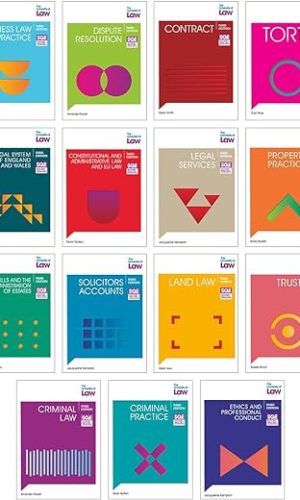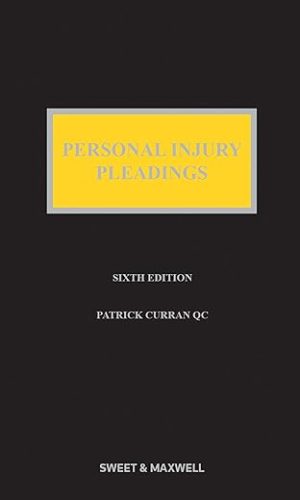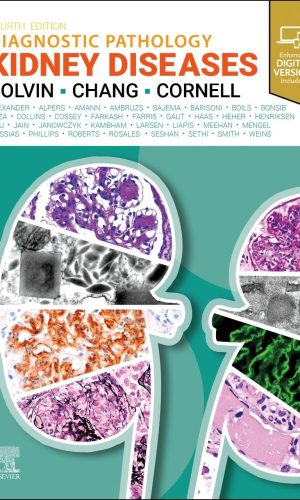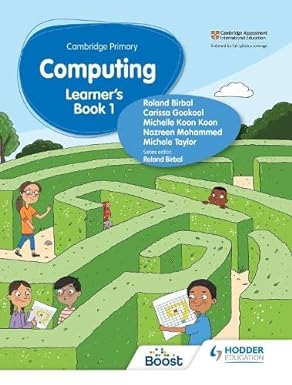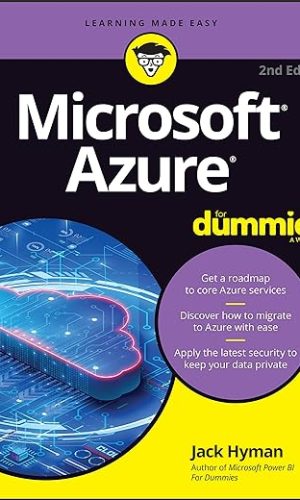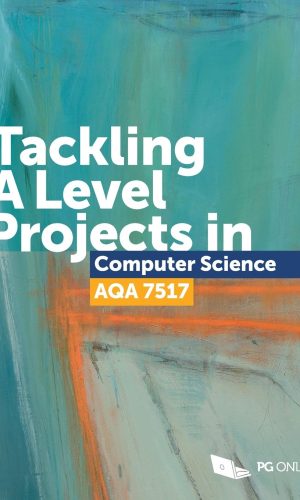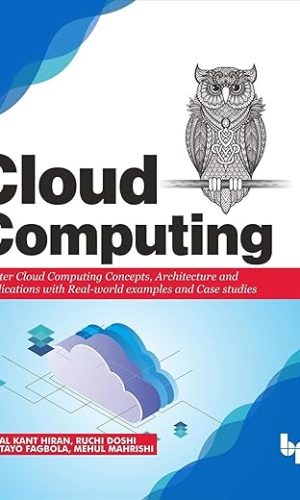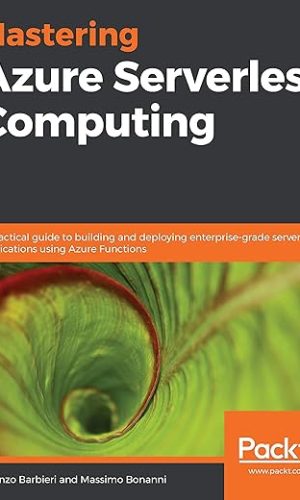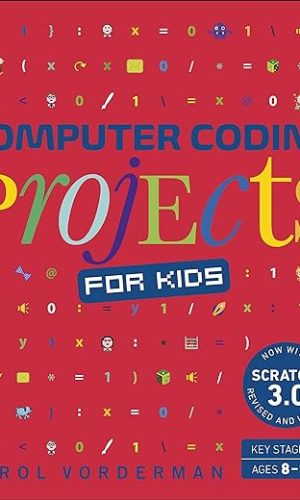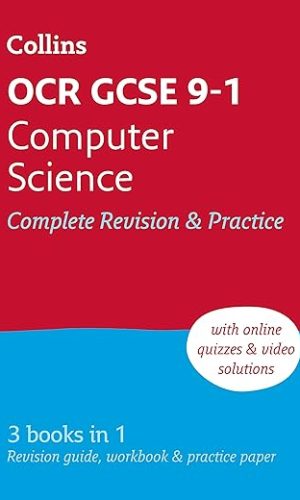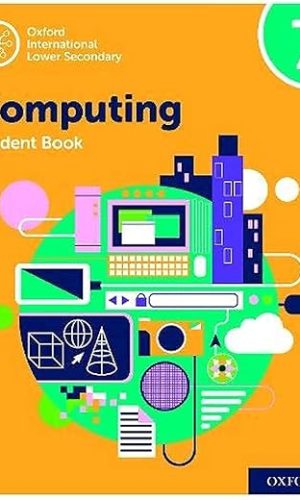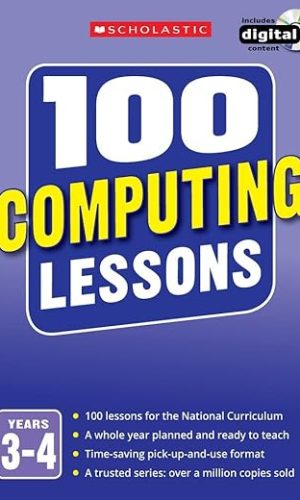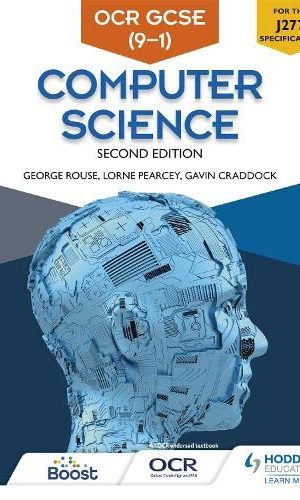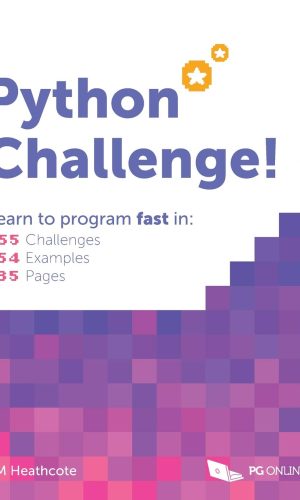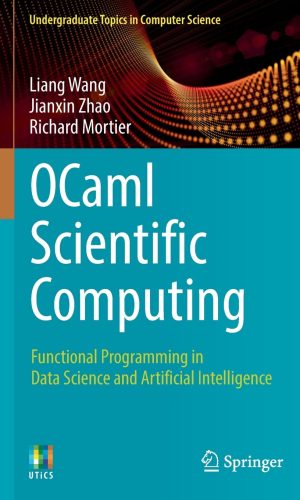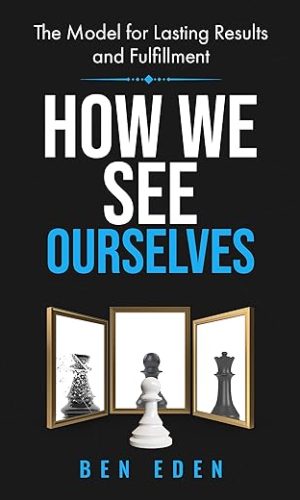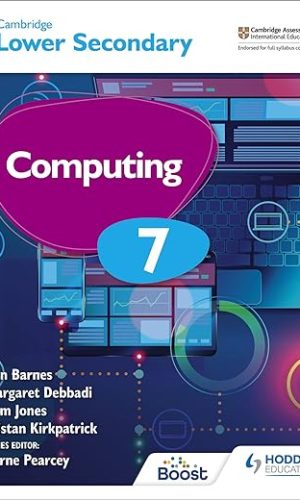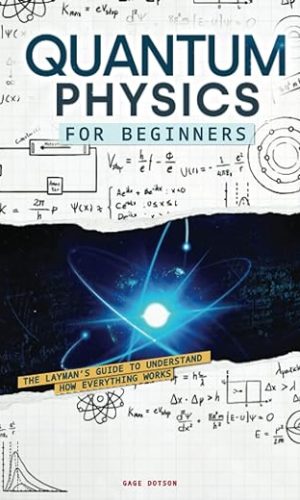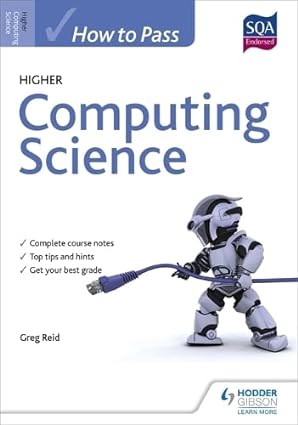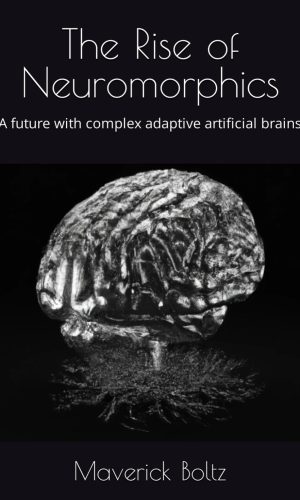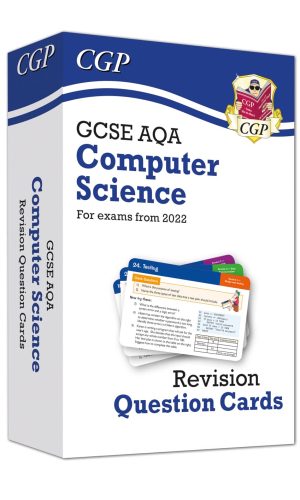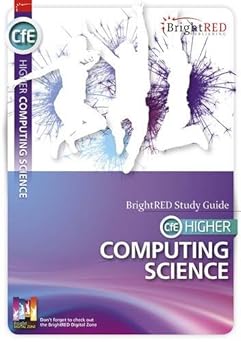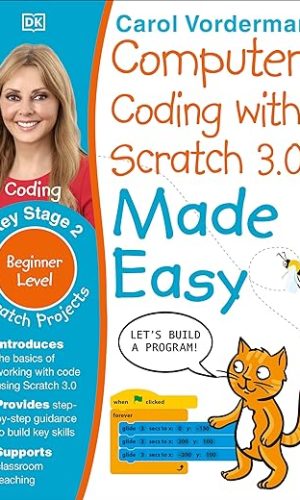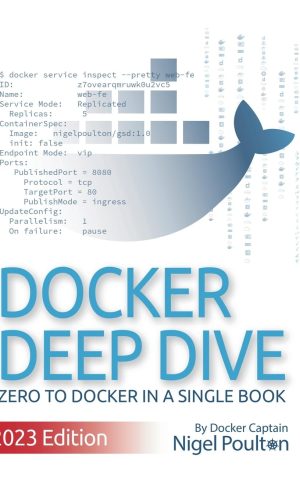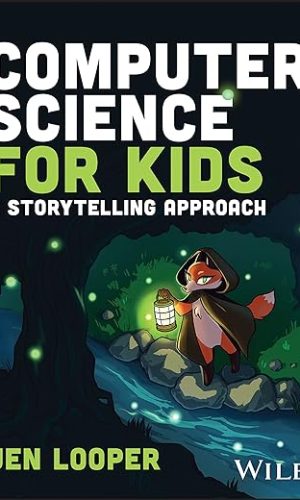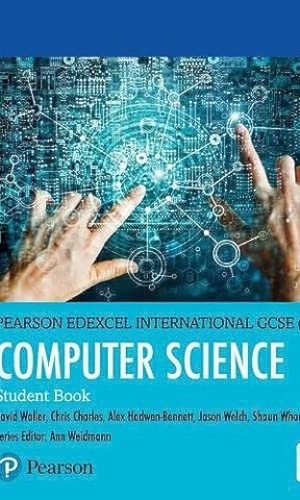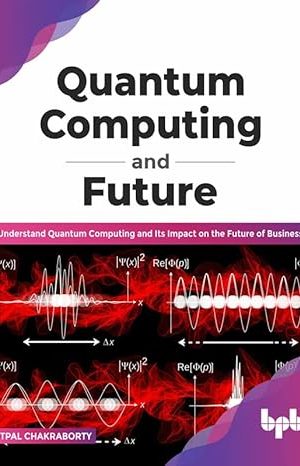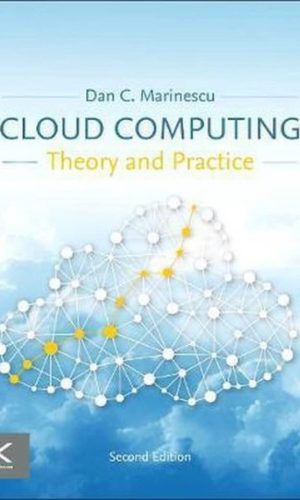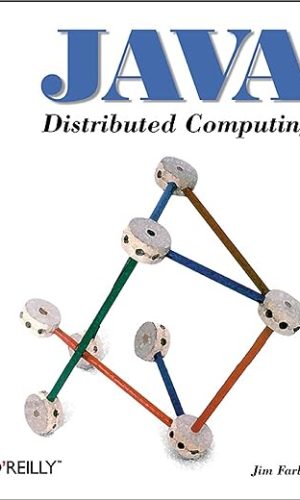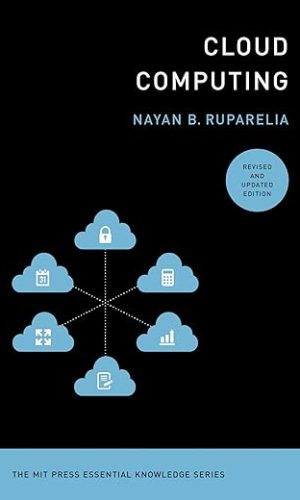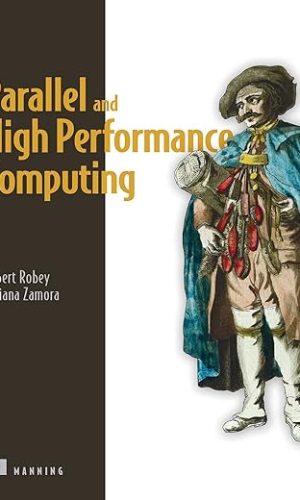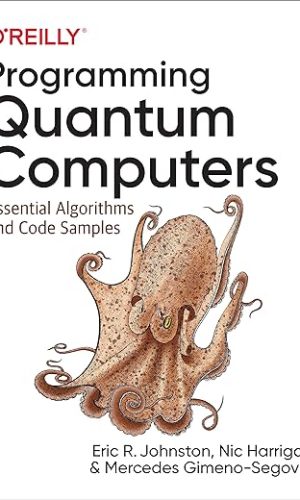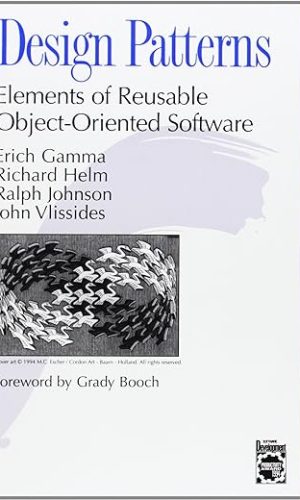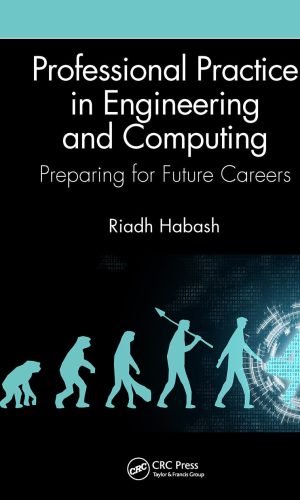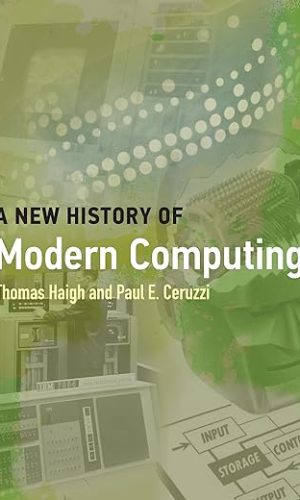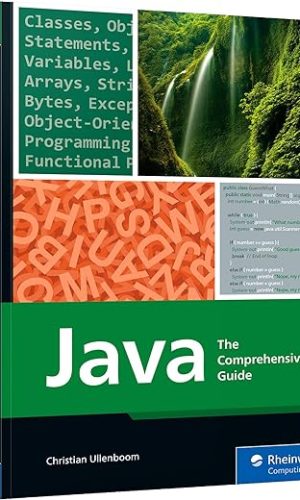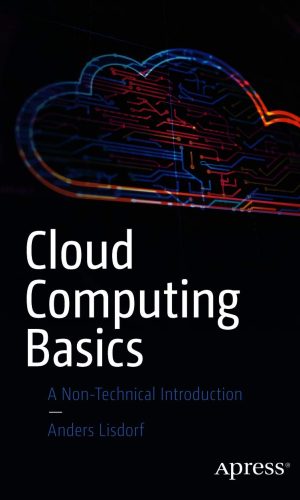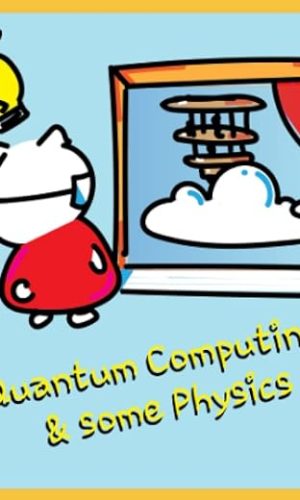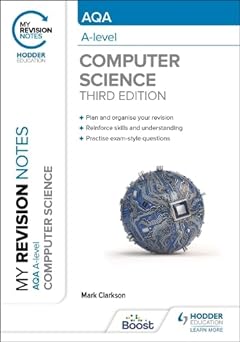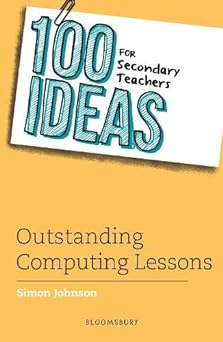Recommended Items
-
LA Woman
Estevan Oriol is hailed as the eye of the new wave Latino aesthetic. Coming up from the streets and the Hip Hop scene, his rough and ready images of his neighborhood homies caught the attention of major media and music players. Oriol has since been commissioned by Nike and Cadillac, as well as directing music videos for Eminem, Linkin Park, D12 and Xzibit. He began taking pictures of his neighborhood and low-rider culture and soon discovered his incredible talent for capturing raw street life. He is now one of the most sought after photographers in the urban community.Read more
£543.90LA Woman
£543.90 -
Nancy Drew Complete Set 1-56 (Nancy Drew Mystery Stories)
Nancy Drew Hardcover Set 1-56 HardcoverRead more
£539.81 -
SQE Bundle FLK 1 & 2: 3e (SQE1)
The Law & Professional Practice (FLK1 & FLK2) bundle contains all 15 study manuals that have been specially collated to focus on the Law area of the Solicitors Regulation Authority (SRA) syllabus for the Solicitors Qualifying Examination (SQE1) in a concise and tightly focused manner.
Published and updated regularly, these user-friendly study manuals are designed to help you successfully prepare for the SQE1 exams. They provide solid knowledge and understanding of fundamental legal principles and rules, while bringing the law and practice to life with example scenarios based on realistic client problems.
Each title is complemented by worked examples and sample assessment questions that enable you to test your knowledge and understanding through single best answer questions that have been modelled on the SRA’s sample assessment questions.
For students at The University of Law, the study manuals are used alongside other learning resources and the University’s assessment bank to prepare students not only for the SQE1 exams, but also for a future life in professional legal practice.
The legal principles and rules contained within this study manual are stated as at 1 April 2023 (titles with tax elements to 30 April 2023)
Titles included in this bundle:
- Business Law and Practice
- Dispute Resolution
- Contract
- Tort
- Legal System of England and Wales
- Constitutional and Administrative Law and EU Law
- Legal Services
- Property Practice
- Wills and the Administration of Estates
- Solicitors Accounts
- Land Law
- Trusts
- Criminal Law
- Criminal Practice
- Ethics and Professional Conduct
Read more
£407.80£455.90SQE Bundle FLK 1 & 2: 3e (SQE1)
£407.80£455.90 -
Personal Injury Pleadings
Personal Injury Pleadings is the authoritative stand-alone source to assist the professional draftsman settling claimants and defendants statements of case. The sixth edition deals with contemporary challenges in litigation as diverse and demanding as the requirements for pleadings in fundamentally dishonest QOCS cases; relief from sanctions applications; cases involving foreign travel; the consequences of BREXIT in Personal Injury litigation; post-ERRA pleadings requirements as to breach of statutory duty; and much more. It provides informed, accurate, in-depth model pleadings, covering the whole gamut of personal injury work, drawn from many years practical experience of real cases. Comprehensive subject coverage is combined with up-to-date informed analysis of recent case law, legislation and subordinate legislation, changes in the Civil Procedure Rules, costs issues, and the minutiae of troublesome practical problems such as the special difficulties involved in fatal accident and late-onset terminal disease claims.Read more
£248.00Personal Injury Pleadings
£248.00 -
Tolley’s Health & Safety at Work Handbook 2022
This essential title provides an authoritative reference source covering key aspects of health and safety law and practice. Adopting a user-friendly A-Z format, the handbook presents clear narrative on the latest legislative changes, how to comply with current law and practice, and how they affect the role of the health and safety manager. Leading experts in health and safety offer insight and guidance on a range of subjects, from accident reporting, welfare facilities, mental ill-health, an aging workforce, absenteeism, travel safety and personal safety. This essential handbook also provides an authoritative reference source covering key aspects of health and safety law and practice, as well as related environmental and employment information. Updated annually, this title fully equips busy practitioners with everything to deal with day-to-day issues quickly.Read more
£237.50 -
Diagnostic Pathology: Kidney Diseases
This expert volume in the Diagnostic Pathology series is an excellent point-of-care resource for practitioners at all levels of experience and training. Covering the full range of common and rare nonneoplastic renal diseases, it incorporates the most recent scientific and technical knowledge in the field to provide a comprehensive overview of all key issues relevant to today’s practice. Richly illustrated and easy to use, Diagnostic Pathology: Kidney Diseases, fourth edition, is a visually stunning, one-stop resource for every practicing pathologist, nephrologist, resident, student, or fellow as an ideal day-to-day reference or as a reliable training resource.-
Provides a comprehensive source for key pathologies and clinical features of more than 265 kidney diseases
-
Features two dozen new chapters on a variety of timely topics, including COVID-19 nephropathies, xenografts, artificial intelligence (AI), digital pathology analysis, harmonized nephropathology terminology, newly identified types of amyloidosis, common artifacts and pitfalls on kidney biopsy, vaccination-associated renal disease, crystal nephropathies, and much more
-
Includes updates from the International Kidney and Monoclonal Gammopathy (IKMG) research group, the American College of Rheumatology/European League Against Rheumatism (ACR/EULAR) classification criteria for IgG4-related disease, Banff Foundation for Allograft Pathology, and others
-
Details updated genetic causes of nephrotic syndromes and antinephrin antibodies in podocytopathies-by the investigator who discovered it
-
Discusses the newly identified variant IgG nephropathy and novel membranous autoantigens
-
Contains chapters on techniques, including immunofluorescence on paraffin sections, C4d staining, and polyomavirus detection in tissue
-
Contains more than 4,300 print and online images, including high-resolution photographs and histologic images, full-color medical illustrations, radiologic images, and more
-
Employs consistently templated chapters, bulleted content, key facts, a variety of tables, annotated images, pertinent references, and an extensive index for quick, expert reference at the point of care
-
Shares the expertise of internationally recognized authors who provide fresh perspectives on multiple topics, with a particular emphasis on practical information that directly assists in making and supporting a diagnosis
-
Includes an eBook version that enables you to access all text, figures, and references, with the ability to search, customize your content, make notes and highlights, and have content read aloud
Read more
£220.70£237.50Diagnostic Pathology: Kidney Diseases
£220.70£237.50 -
-
Handbook of Conspiracy Theory and Contemporary Religion: 17 (Brill Handbooks on Contemporary Religion)
The Handbook of Conspiracy Theories and Contemporary Religion is the first collection to offer a comprehensive overview of conspiracy theories and their relationship with religion(s), taking a global and interdisciplinary perspective.Read more
£195.40
-
Cambridge Primary Computing Learner’s Book Stage 1
This title has been endorsed by Cambridge Assessment International Education.
Help learners develop essential computing skills with an approach that uses real-life examples, reinforces key vocabulary and provides opportunities to learn, practise and apply throughout.
– Encourage learners to become confident in working with information and ideas of their own and those of others with discussion tasks, as well as with What can you do? panels at the end of each unit for self-assessment.
– Provide a clear pathway through the learning objectives with Practise tasks in each unit, as well as Go further and Challenge yourself! panels with questions designed to support differentiation.
– Recap and activate learners’ prior knowledge with Do you remember? activities and introduce new computing skills with Learn and Practise tasks.Contents
How to use this book
Term 1
Unit 1 Computers are everywhere
Unit 2 Be an animator
Unit 3 Be a data detective
Term 2
Unit 4 Be a designer
Unit 5 We can network
Unit 6 Be a problem solver
Unit 7 Computers control things
Term 3
Unit 8 Be a data collector
Unit 9 Be a games developer
Unit 10 We are connected
Unit 11 Be an artist
GlossaryRead more
£15.20 -
Microsoft Azure For Dummies
The must-have reference for Azure newcomers
As Microsoft’s Azure platform takes a larger stake in the cloud computing world, more tech pros need to know the ins-and-outs of this fast-growing platform. Microsoft Azure For Dummies is the essential guide for users who are new to the platform. Take your first steps into the world of Azure as you learn all about the core services―straight from a Microsoft expert. This book covers the Azure essentials you need to know, including building a virtual network on Azure, launching and scaling applications, migrating existing services, and keeping everything secure. In classic Dummies style, you’ll learn the fundamentals of Azure’s core services and―when you’re ready―how to move into more advanced services.
- Discover the basics of cloud computing with Microsoft Azure and learn what services you can access with Azure
- Build your cloud network with Azure and migrate an existing network to the platform
- Scale applications seamlessly and make sure your security is air-tight
Updated to included expanded information on data resources, machine learning, artificial intelligence, and collaboration, Microsoft Azure For Dummies, 2nd Edition answers the call for an entry-level, comprehensive guide that provides a simple-to-understand primer on core Azure services. It’s an invaluable resource for IT managers and others arriving at the platform for the first time.
Read more
£18.00Microsoft Azure For Dummies
£18.00 -
Tackling A Level Projects in Computer Science for AQA 7517 Step-by-step Essential Coursework A-Level Computing Project Guide NEA Non-exam Assessment A Level Computer Science…
Subject level: A Level Computer Science
Exam board: AQA
A clear, concise, step-by-step guide to your A Level Computer Science NEA project
Completing an A Level project is a huge undertaking for any student regardless of their competence in programming. The key to success and increasing results is to plan and write a strong report, evidencing what has been carried out.
This guide to Tackling A Level Projects in Computer Science is designed to give you clear and focused advice to help you maximise your mark potential when completing your AQA Computing coursework project.
Tailored for AQA, it will take you through all aspects of the project, from document setup, to each stage of the process. This guide will give you essential tips, examples and checklists to complete every stage before you hand in your project with pride and confidence.
This guide is suitable for use with any language or project idea being undertaken.
PG Online are multi-award-winning specialists in Computer Science with decades of teaching, examining and programming experience.
Features:
- Full breakdown and ‘how-to’ of everything you need to complete in the specification
- Checklist for each section of the project to ensure you’ve got everything in order
- Worked examples of sample project steps and solutions
- Clear layout with full-colour examples
- Examiners’ tips on what to do and what to avoid
- Comprehensive index
Read more
£10.50 -
Cloud Computing
With the advent of internet, there is a complete paradigm shift in the manner we comprehend computing. Need to enable ubiquity, convenient and on-demand access to resources in highly scalable and resilient environments that can be remotely accessed, gave birth to the concept of Cloud computing. The acceptance is so rapid that the notion influences sophisticated innovations in academia, industry and research world-wide and hereby change the landscape of information technology as we thought of. Through this book, the authors tried to incorporate core principles and basic notion of cloud computing in a step-by-step manner and tried to emphasize on key concepts for clear and thorough insight into the subject.This book begins with the fundamentals of cloud computing, its service and deployment models, architecture, as well as applications and platforms. It presents some key enterprise strategies and models for the adoption of and migration to cloud. Privacy and security issues and challenges also form a major part of our discussion in the book as well as case studies of cloud computing adoption in Sub-Saharan Africa and India. The book concludes with a discussion of several advanced topics, such as Amazon Web Services (AWS), Open Nebulla, Microsoft Azure, Apache Hadoop and Google App Engine (GAE). What will you learnLearn about the Importance of Cloud Computing in Current Digital EraUnderstand the Core concepts and Principles of Cloud Computing with practical benefitsLearn about the Cloud Deployment models and Services Discover how Cloud Computing Architecture works Learn about the Load balancing approach and Mobile Cloud Computing (MCC)Learn about the Virtualization and Service-Oriented Architecture (SOA) conceptsLearn about the various Cloud Computing applications, Platforms and Security conceptsUnderstand the adoption Cloud Computing technology and strategies for migration to the cloudCase Studies for Cloud computing adoption – Sub-Saharan Africa and India.Read more
£5.90Cloud Computing
£5.90 -
Mastering Azure Serverless Computing: A practical guide to building and deploying enterprise-grade serverless applications using Azure Functions
Become an expert in implementing Azure Functions to work seamlessly with your serverless applications
Key Features
- Develop scalable, robust multi-tier apps without worrying about infrastructure needs
- Deploy and manage cost-effective and highly available serverless apps using Azure Functions
- Accelerate enterprise-level application development by seamlessly integrating different cloud services with Azure Functions
Book Description
Application development has evolved from traditional monolithic app development to using serverless options and microservices. This book is designed to guide you through using Microsoft’s Azure Functions to process data, integrate systems, and build simple APIs and microservices.
You will discover how to apply serverless computing to speed up deployment and reduce downtime. You’ll also explore Azure Functions, including its core functionalities and essential tools, along with understanding how to debug and even customize Azure Functions. In addition to this, the book will take you through how you can effectively implement DevOps and automation in your working environment. Toward the concluding chapters, you’ll cover some quick tips, troubleshooting techniques, and real-world serverless use cases that will help you make the most of serverless computing.
By the end of this book, you will have gained the skills you need to develop and deliver cost-effective Azure serverless solutions.
What you will learn
- Create and deploy advanced Azure Functions
- Learn to extend the runtime of Azure Functions
- Orchestrate your logic through code or a visual workflow
- Add caching, security, routing, and filtering to your APIs
- Use serverless technologies in real-world scenarios
- Understand how to apply DevOps and automation to your working environment
Who this book is for
This book is designed for cloud administrators, architects, and developers interested in building scalable systems and deploying serverless applications with Azure Functions. Prior knowledge of core Microsoft Azure services and Azure Functions is necessary to understand the topics covered in this book.
Table of Contents
- Developing and Running Azure Functions
- Customizing Your Azure Functions
- Programming Languages Supported in Azure Functions
- Deploying and Configuring Your Azure Functions
- Leverage the Power of DevOps with Azure Functions
- Testing and Monitoring
- Serverless and Containers
- Orchestration as Code – Durable Functions
- Orchestration as Design – Logic Apps
- Empowering Your Serverless API with API Management
- High-Scale Serverless Event Processing with Event Grid
- Best Practices and Use Cases for Azure Serverless Computing
Read more
£24.70 -
Computer Coding Projects for Kids: A unique step-by-step visual guide, from binary code to building games
Python for beginners – you’ll learn how to build amazing graphics, fun games, and useful apps using Python, an easy yet powerful free programming language available for download.
A perfect introduction to Python coding for kids ages 10 and over who are ready to take the next step after Scratch – all they need is a desktop or laptop, and an internet connection to download Python 3.
Using fun graphics and easy-to-follow instructions, this straightforward, visual guide shows young learners how to build their own computer projects using Python. Step-by-step instructions teach essential coding basics like loops and conditionals, and outline 14 fun and exciting projects. Included is a script that cracks secret codes, a quiz to challenge family and friends, a matching game, and more.
When they feel more confident, kids can think creatively and use the tips and tricks provided to personalise and adapt each project. The simple, logical steps are fully illustrated with fun pixel art and build on the basics of coding. Kids will eventually have the skills to build whatever kind of project they can dream up – the only limit is your imagination!
Create, Remix And Customise!
Create crazy games, crack fiendish codes, and compose crafty quizzes with this amazing collection of Python projects. Suitable for beginners and experts alike, Computer Coding Python Projects for Kids has everything enthusiastic coders need.
Follow the simple steps to learn how to write code in this popular programming language and improve your programming skills, while you learn to create, remix, and customise your own projects.
The material in this educational book is example based and the colours and humour keep children engaged while they learn to code. If your child is ready for the next step after mastering Scratch, this is the book to get!
Inside this guide, you will learn about:
– Starting with Python and first steps
– Creating cool graphics and playful apps
– Getting acquainted with games in PythonSupporting STEM education initiatives, computer coding teaches kids how to think creatively, work collaboratively, and reason systematically, and is quickly becoming a necessary and sought-after skill. DK’s computer coding books for kids are full of fun exercises with step-by-step guidance, making them the perfect introductory tools for building vital skills in computer programming. Computer Coding Python Projects for Kids is the next in an awesome coding book series for kids. Add Computer Coding Projects for Kids in Scratch 3.0 and Computer Coding Games for Kids in Scratch 3.0 to your collection.
Read more
£12.50£14.20 -
OCR GCSE 9-1 Computer Science Complete Revision & Practice: Ideal for the 2024 and 2025 exams (Collins GCSE Grade 9-1 Revision)
Exam Board: OCR
Level: GCSE 9-1
Subject: Computer Science
Suitable for the 2023 examsComplete revision and practice to fully prepare for the GCSE grade 9-1 exams
Revision that Sticks! Collins OCR GCSE 9-1 Computer Science Complete All-in-One Revision and Practice uses a revision method that really works: repeated practice throughout.
A revision guide, workbook and practice paper in one book!
With clear and concise revision for every topic, plus seven practice opportunities, Collins offers the best revision at the best price.For even more practice QR codes link directly from the topics in the revision guide to online interactive quick recall quizzes and to worked solution videos in the workbook.
Includes:
• quick tests as you go
• end-of-topic practice questions
• topic review questions later in the book
• mixed practice questions at the end of the book
• more topic-by-topic practice in the workbook
• a complete exam-style paper
• online quick recall quizzes for every topic
• online video solutions for every topic
• free Q&A flashcards to download online
• free ebook versionRead more
£8.20£10.40 -
Oxford International Lower Secondary Computing Student Book 7
A complete three-year lower secondary computing course that takes a real-life, project-based approach to teaching young learners the vital computing skills they will need for the digital world. Each unit builds a series of skills towards the creation of a final project, with topics ranging from designing your own robot to programming simple games and designing and creating web pages.Within each stage, key concepts are covered to give learners not only the skills they need to use technology effectively, but also the knowledge in how to do so creatively, safely and collaboratively:
· Understand how modern technology works
· Use a wide range of computer hardware and software for analytical and creative tasks
· Use the internet safely, respectfully, and selectively
· Write computer programs and develop computational thinkingRead more
£11.40£20.90 -
100 Computing Lessons for the National Curriculum for teaching ages 7-9 (Years 3-4). Includes short term planning and lessons for the whole year. (100 Lessons) (100 Lessons -…
Praise for Scholastic’s 100 Lessons-Planning Guides: “These books answer my prayers! Having access to long and medium term plans, as well as clear advice concerning progression and key concepts has already helped me to plan ahead. The inclusion of digital content that can easily be personalised is a real bonus, and completely welcome. Thank you, Scholastic for a fantastic resource.’ Steven Gibson, Hyde Park Junior School, Plymouth
Master the Curriculum with Scholastic’s 100 Lessons. Scholastic’s acclaimed 100 Lessons series is here to help your school prepare. Trusted by teachers for 15 years and selling more than one million copies, 100 Lessons is fully in line with the Curriculum objectives. Our new 100 Lessons and Planning Guides will make planning and teaching the new requirements simple and stress-free.
- Understand the requirements and plan with confidence for all six years
- Long- and medium-term planning and progression, ideal for subject coordinators
- Get a clear overview with simple week-by-week breakdowns on how to create units of work
- Includes a FREE A2 poster that gives an overview of progression and a CD-ROM full of editable planning grids
- View sample resources at www.scholastic.co.uk/100lessons
Read more
£3.20 -
OCR GCSE Computer Science, Second Edition
Written by leading Computer Science teachers, this brand-new textbook will guide students through the updated OCR GCSE Computer Science specification topic by topic, and provide them with standalone recap and review sections, worked examples and clear explanations of complex topics.
This Student Book:
>> develops computational thinking skills in line with the new Practical Programming element of Component 02
>> provides differentiated material with the ‘beyond the spec’ feature
>> includes standalone recap and review sections at the end of each chapter
>> includes answers to the Knowledge Check questions to support independent learning
>> provides definitions of technical terms, along with a glossary of words that will be needed for assessment.Looking for answers for the Student Book? They can be found at the back of the print textbook.
You can now access a free set of practice questions on the Hodder Education website. Please note, these questions are not endorsed by OCR and have not been subject to any OCR quality assurance processes.
George Rouse, Lorne Pearcey and Gavin Craddock are highly respected and widely published authors of resources.
Read more
£22.70£23.80OCR GCSE Computer Science, Second Edition
£22.70£23.80 -
Python Challenge- Learn to program fast in 155 challenges, 54 examples and 85 pages –K12, GCSE and KS3 Level ClearRevise Clear Revise by PG Online Computing Programming Coding…
Suitable for: Grade 6+ / AP / KS3 / GCSE Computer Science
Ages: 10+
Learn to program fast in 155 challenges, 54 examples and 85 pages
This handy little guide takes a ‘gamified’ approach to Python. With appealing visuals and colourful design throughout, it is aimed at supporting pupils, parents and everyone else interested in learning Python.
There’s no substitute for practice when it comes to learning a new skill!
Python syntax is simple to learn, but becoming an expert in writing programs to solve different kinds of problems takes a bit longer. That’s why this book has a short explanation of each new statement or technique, followed by one or more examples and then loads of practice challenges.
Some of the challenges will take you only a minute or two, using the Python Interactive window to try out new statements and get immediate results. As you get further into the book, you will be challenged to write programs to perform different kinds of tasks – for example to find the results of a calculation, write a program for a simplified cash machine, sort a list of items into alphabetical order, or to record data in a text file to be read, formatted, and printed.
The programming solutions to some challenges have been helpfully simplified for an inexperienced programmer to modify rather than to write from scratch. This builds your confidence in problem-solving. That’s why 35 challenges consist of partially written programs for you to complete.
PG Online are multi-award-winning education specialists with decades of teaching, examining and design experience.
Features:
- Helpful programming tips
- Coded solutions with answers given in the back of the book
- Starred challenges – Partially written programs for you to complete
- Handy, lightweight, book-bag size
- Quick reference syntax guide
- Free download pack of supporting Python challenges and solutions
Read more
£9.50 -
OCaml Scientific Computing: Functional Programming in Data Science and Artificial Intelligence (Undergraduate Topics in Computer Science)
This book is about the harmonious synthesis of functional programming and numerical computation. It shows how the expressiveness of OCaml allows for fast and safe development of data science applications. Step by step, the authors build up to use cases drawn from many areas of Data Science, Machine Learning, and AI, and then delve into how to deploy at scale, using parallel, distributed, and accelerated frameworks to gain all the advantages of cloud computing environments.
To this end, the book is divided into three parts, each focusing on a different area. Part I begins by introducing how basic numerical techniques are performed in OCaml, including classical mathematical topics (interpolation and quadrature), statistics, and linear algebra. It moves on from using only scalar values to multi-dimensional arrays, introducing the tensor and Ndarray, core data types in any numerical computing system. It concludes with two more classical numerical computing topics, the solution of Ordinary Differential Equations (ODEs) and Signal Processing, as well as introducing the visualization module we use throughout this book. Part II is dedicated to advanced optimization techniques that are core to most current popular data science fields. We do not focus only on applications but also on the basic building blocks, starting with Algorithmic Differentiation, the most crucial building block that in turn enables Deep Neural Networks. We follow this with chapters on Optimization and Regression, also used in building Deep Neural Networks. We then introduce Deep Neural Networks as well as topic modelling in Natural Language Processing (NLP), two advanced and currently very active fields in both industry and academia. Part III collects a range of case studies demonstrating how you can build a complete numerical application quickly from scratch using Owl. The cases presented include computer vision and recommender systems.
This book aims at anyone with a basic knowledge of functional programming and a desire to explore the world of scientific computing, whether to generally explore the field in the round, to build applications for particular topics, or to deep-dive into how numerical systems are constructed. It does not assume strict ordering in reading – readers can simply jump to the topic that interests them most.
Read more
£28.00£42.70 -
Coding Activity Book (STEM Starters for Kids): Activities to Help You Think Like a Coder!
Future coders will love the mix of non-fiction and activities in this educational book full of BIG ideas. Fun games and puzzles teach boys and girls the basics about programming, squashing bugs, spotting patterns and solving problems… all without a computer screen. Start a lifelong passion for STEM subjects.Read more
£6.20£6.60 -
How We See Ourselves: The Model for Lasting Results and Fulfillment
Embrace the transformative journey that awaits within these pages, for it holds the key to unlocking your ultimate potential. Through the profound wisdom shared in this book, you will discover the remarkable ability to master your thoughts and shatter the chains of self-doubt. No longer will failure haunt your mind, for you will wield the power to transform those thoughts into resolute statements of success. Even in the face of adversity, you will harness the strength to convert pain into power, propelling you forward with unwavering determination.Believe in yourself, for within you lies an extraordinary force waiting to be unleashed. The time for self-belief is now, and the journey starts with the profound teachings nestled within these pages.
Read more
£0.70 -
Cambridge Lower Secondary Computing 7 Student’s Book
This title has been endorsed by Cambridge Assessment International Education
Deliver an exciting computing course for ages 11-14, building on students’ existing computing skills and experience whilst demonstrating new concepts, with practice opportunities to ensure progression.
– Recap and activate students’ prior knowledge with ‘Do you remember?’ panels and introduce more advanced skills with ‘Challenge yourself!’ tasks.
– Allow students to demonstrate their knowledge creatively with engaging end of unit projects that apply skills and concepts in a range of different contexts.
– Develop computational thinking with an emphasis on broadening understanding throughout the activities.
– Provide clear guidance on e-safety with a strong focus throughout.Contents
Introduction
1 Block it out: Moving from blocks to text
2 Decomposing problems: Creating a smart solution
3 Connections are made: Accessing the Internet
4 The power of data: Using data modelling
5 Living with AI: Digital data
6 Software development: Planning and prototyping
Glossary
IndexRead more
£12.30 -
Quantum Physics for Beginners: The Layman’s Guide to Understand How Everything Works. Look Into The Mind-blowing Secrets of Science in a Comprehensible Way, From String Theory…
Updated New 2024 Edition
The must-have guide to learning the basics, history, and most advanced progress of Quantum Physics, even if you have never studied it or are just starting out.
✔ Do you want to know the basic principles that govern all the reality around you?
✔ Would you like to know how your everyday habits are affected by quantum physics laws?
✔ Are you fascinated by knowing the mysteries of quantum physics, but you really don’t know where to begin?
Well, you have just found the starting point of your journey: if you want answers to these questions in a simple and understandable way this is the book for you.
Nothing is more fascinating than understanding how our universe works, and what’s in the creases of reality. Quantum Physics can give us all the answers that we as humans have always looked for: where our Universe comes from? Is there anything beyond who we are, here and now? What’s the role of computers in human evolution?
When science found itself at a dead stop, Quantum Physics came in help to reveal those secrets of reality we had never been able to understand before.
And I’m not only talking about the big mysteries of the universe, or the minuscule realm of atoms, but also simple events regarding our daily routine. For example, did you know that you continually make use of a Quantum Physics principle to smell a flower… or a rotten egg?? Inside this book, I’ll show you how!
The good news is that understanding all this doesn’t have to be complicated. Inside this guide, I will give you all the tools you need to start to learn the key “principles of everything” in a way that is as accessible as it can get.
Among the many interesting topics, you will discover:
- THE TRUTH about Quantum Physics. What it is, how the scientific community came to discover its principles and why
- THE BIG DIFFERENCE between the classical physics paradigms and quantum physics
- THE 4 PRINCIPLES of the quantum field, the cornerstones of existence
- QUANTUM MAGIC: the entanglement and tunneling to defy your usual physics
- QUANTUM COMPUTING, or the new evolution of mankind
- STRING THEORY, or the explanation of everything there was, is, and will
- QUANTUM PHYSICS IN YOUR LIFE: you’d be surprised to know that everyday objects like a toaster make use of quantum physics principles to work
And much more!
This book explains the most critical concepts of quantum physics in a clear and straightforward way without feeling overwhelmed by complex math!
Are you ready for a journey into the limitless world of existence?
Click on “Buy Now” and order your copy to start finding out some of the most mind-blowing discoveries of modern science!
Read more
£10.40 -
How to Pass Higher Computing Science
Exam Board: SQA
Level: Higher
Subject: Computing Science
First Teaching: September 2014
First Exam: Summer 2015Get your best grade with the SQA endorsed guide to Higher Computing Science for CfE.
This book contains all the advice and support you need to revise successfully for your Higher (for CfE) exam. It combines an overview of the course syllabus with advice from a top expert on how to improve exam performance, so you have the best chance of success.· Refresh your knowledge with complete course notes
· Prepare for the exam with top tips and hints on revision techniques
· Get your best grade with advice on how to gain those vital extra marksRead more
£1.70 -
GCSE Computer Science for OCR Student Book Updated Edition
Written for the OCR GCSE Computer Science updated specification (J277) for first teaching from 2020. This print student book has been updated and reordered and uses an exciting and engaging approach to help students build their knowledge and master underlying computing principles and concepts. Designed to develop computational thinking, programming and problem-solving skills, this resource includes challenges and real-life examples that demonstrate how computer science relates to everyday life with practice questions. Our new reflection feature will help students to reflect on their progress and see where they could improve. Answers can be found in the teacher’s resource.Read more
£21.50£23.90 -
The Rise of Neuromorphics: A future with complex adaptive artificial brains
The book describes the new field of neuromorphic computing and its current limitations. It provides a history of the field since information theory and cybernetics, AI and the brain, and makes the case for new directions in neuromorphic computing.Read more
£6.20 -
GCSE Computer Science AQA Revision Question Cards: for the 2024 and 2025 exams (CGP AQA GCSE Computer Science)
Quick-fire practice for achieving the best grades. From CGP – the GCSE experts!
It’s all very well reading through your study notes, but how much can you actually remember? Put your GCSE Computer Science knowledge to the test with these superb CGP Revision Question Cards! There are 64 cards in the pack, covering every Grade 9-1 AQA topic. Each one starts off with quick questions to warm you up, followed by harder questions to get your brain into top gear. Questions cover algorithms, programming, data representation, computer systems, networks and issues. Amazing! Flip the card over and you’ll find full answers to each question, carefully written to help you understand everything you need to know. Plus, there’s a revision tip on each card! You’ll find matching study notes for the whole course in our AQA GCSE Computer Science Revision Guide (9781789086096).
Read more
£9.00 -
CfE Higher Computing Science (Bright Red Study Guide)
Completely new titles from our bestselling author to meet all the tweaks and changes in the new CfE Higher course. Fully supported by our FREE BrightRED Digital Zone at www.brightredbooks.net.
Contents:- Software Design and Development
- Information System Design and Development
- Value Added Unit
Read more
£3.90 -
Computer Coding with Scratch 3.0 Made Easy, Ages 7-11 (Key Stage 2): Beginner Level Computer Coding Exercises (Made Easy Workbooks)
Get ready to learn a whole new language: computer coding! Perfect for coders already familiar with Scratch, with easy-to-understand instructions and no complicated jargon. Get ready, get set, get coding!
Download Scratch, a simple and free programming language and get programming quickly with Scratch 3.0 Made Easy. It’s the perfect coding book for beginners or Scratch enthusiasts who want to find out how to use all the exciting new features of Scratch 3.0. These include new sprites, backgrounds, sound effects, paint editor, and sound-editing tool to make music or sound affects. This new version of Scratch will also let you code and play games on tablets, and play the games you create on smart phones.
In Scratch 3.0 Made Easy, programming and coding for kids is broken down clearly and simply, so children will easily learn how to create their own games, projects, and much more on the screen.
Read more
£3.80 -
Docker Deep Dive: 2023 Edition
The demand for professionals with Docker skills that can develop cloud-native microservices applications is rising.
Docker Deep Dive: 2023 Edition provides comprehensive explanations of core concepts and offers step-by-step guidance on creating and managing containerized applications – from source code to executing in the cloud.
If you are looking for a comprehensive resource to help you master Docker and containers in the real world, this book is for you. As well as giving you valuable knowledge and skills, it offers insights and tips to help you navigate the container and cloud-native ecosystems with confidence
What you will learn:
✓ How to build apps into container images and share them
✓ How to deploy and manage multi-container apps, including scaling and self-healing
✓ How to secure containers and the infrastructure they run on
✓ How to securely network containerized applications
✓ How to integrate with external storage providersWhether you’re a beginner or a seasoned developer, Docker Deep Dive is an invaluable resource that will power your career to the next level.
Read more
£30.40£38.30Docker Deep Dive: 2023 Edition
£30.40£38.30 -
Computer Science for Kids: A Storytelling Approach
A kid-friendly and rigorous new way to teach young readers the fundamentals of computer science
In Computer Science for Kids: A Storytelling Approach, AWS Head of Academic Advocacy and Google Developer Expert Dr. Jen Looper delivers a colorful, fun, and exciting demonstration for young readers who want to learn the basics of computer science. Using a variety of technologies, the book covers the elements of computer science in concise detail and illustrates how to build projects to learn foundational concepts behind the technology powering the internet.
In the book, you’ll find projects to build using both basic and emerging technologies―like SQL, game development, storytelling software, and 3D augmented reality―as well as:
- Chapter projects aligned to K-12 curriculum standards for grades 6-8 and a GitHub repo featuring open-source projects
- Lesson plans for teachers
- An online space for classrooms to showcase and discuss their work
An easy-to-follow and kid-friendly new resource for technology-curious middle school students, Computer Science for Kids is the fun and interesting web development resource that classroom teachers, parents, and homeschooling families have been waiting for.
Read more
£20.30£25.60Computer Science for Kids: A Storytelling Approach
£20.30£25.60 -
Pearson Edexcel International GCSE (9-1) Computer Science Student Book
Written specifically for Pearson Edexcel International GCSE 9-1 in Computer Science
-
Student Book with 3-year access to digital ActiveBook (eBook)
-
Developed for international students
-
Fully matched to the latest Pearson Edexcel specification
-
Designed to supply students with the best preparation possible for the examination
-
Online Teacher Resource Pack also available, providing further planning, teaching and assessment support
Written by a highly experienced author team, Pearson Edexcel International GCSE (9–1) Computer Science Student Book provides comprehensive coverage of the latest Pearson Edexcel specification. The Student Book has been developed with progression, international relevance and support at its core. With differentiated exercises, exam practice, a glossary of key terminology and signposted transferable skills throughout, this resource will ensure the best possible learner outcomes. Also reviewed by a language specialist to ensure the book is written in a clear and accessible style. Three-year access to the eBook is included.
Read more
£31.90 -
-
Quantum Computing and Future: Understand Quantum Computing and Its Impact on the Future of Business (English Edition)
Be Prepared for a Revolutionary Transformation with Quantum ComputingKey Features
● Demystify concepts, working principles, and the process of Quantum Computing.
● Extensive coverage on various applications of Quantum Computing across industries and sectors.
● Learn how to harness the power of Quantum Computing and Artificial Intelligence in your business.Description
The book ‘Quantum Computing and Future’ brings a holistic view of the potential of Quantum Computing across various industries and sectors. This book touches almost every area of application that can be benefitted from the capability of Quantum Computing, thus helping readers to understand how this innovative technology brings agility and transformation across enterprises.This book begins with concepts and principles of Quantum Computing followed by the process of quantum computing functions. It explains how Quantum Computing has led to transformation across sectors, including Healthcare, Banking, Finance, Genomics, Drug Discovery, Aviation, Tourism, Cryptocurrency, and Security. The book describes how an enterprise can leverage the tremendous capabilities of Quantum Computing and put its application in your business infrastructure for its optimal performance. You will see yourself most updated on the current progress of implementation of Quantum Computers and how their services can be available for enterprise use.
By the end of the book, you will understand the enormous potential of Quantum Computing and how it is transforming businesses across different industries.
What you will learn
● Explore Quantum concepts and principles such as Superposition, Entanglement, and Interference.
● Understand how Quantum Computing is revolutionizing the Healthcare and Medicine fields.
● Understand how Quantum Computing is transforming the Banking and Finance sectors.Who this book is for
This book is for IT and Non-IT professionals, developers, business analysts, business heads, CXOs, students, and researchers who are interested in Quantum Computing. Anyone who wants to know the latest trends and future of this cutting-edge technology will find this book helpful.Table of Contents
1. An Overview of Quantum Computing
2. History of Quantum Physics and Dynamics
3. Quantum Concepts and Principles (Superposition, Entanglement and Interference)
4. Quantum Computing in Healthcare and Medicine
5. Quantum Computing in Banking and Finance
6. Quantum Computing in Drug Discovery and Research
7. Quantum Computing in Aviation, Travel, and Logistics
8. Quantum Computing in Crypto and Security
9. Quantum Computing in Space Exploration, Astronomical, and Weather Studies
10. Quantum Computing for Solving Complex Optimization Problems
11. Quantum Computing in Chemistry, Chemical Research and Agriculture
12. Quantum Computing in Artificial Intelligence and Machine Learning
13. Quantum Computing for Optimizing Big Data
14. Quantum Computing for Simulation of Durable Battery Designs
15. Quantum Computing and Future of Autonomous Vehicles
16. Quantum Computing in Education and Research
17. How Quantum and AI Will Revolutionize Defense and Warfare?
18. Quantum Computing in Life Science
19. Quantum Computing in Cyber Security and Hacking
20. Quantum Computing in Movies and Cinemas
21. Quantum Computing in Spirituality and Mysticism
22. Quantum Computing in Robotics
23. Quantum Computing in Nuclear Research and Study of Atoms
24. Quantum Computing in Sports and Games
25. Quantum Computing in Traffic Optimization
26. Quantum Computing in Metaverse
27. Quantum Computing in Fintech, AI, and Sustainability
28. How Quantum Explains Human Consciousness?Read more
£7.50 -
Cloud Computing: Theory and Practice
Cloud Computing: Theory and Practice, Second Edition, provides students and IT professionals with an in-depth analysis of the cloud from the ground up. After an introduction to network-centric computing and network-centric content in Chapter One, the book is organized into four sections. Section One reviews basic concepts of concurrency and parallel and distributed systems. Section Two presents such critical components of the cloud ecosystem as cloud service providers, cloud access, cloud data storage, and cloud hardware and software. Section Three covers cloud applications and cloud security, while Section Four presents research topics in cloud computing. Specific topics covered include resource virtualization, resource management and scheduling, and advanced topics like the impact of scale on efficiency, cloud scheduling subject to deadlines, alternative cloud architectures, and vehicular clouds. An included glossary covers terms grouped in several categories, from general to services, virtualization, desirable attributes and security.Read more
£49.40 -
Java Distributed Computing (Java Series)
Distributed computing and Java go together naturally. As the first language designed from the bottom up with networking in mind, Java makes it very easy for computers to cooperate. Even the simplest applet running in a browser is a distributed application, if you think about it. The client running the browser downloads and executes code that is delivered by some other system. But even this simple applet wouldn’t be possible without Java’s guarantees of portability and security: the applet can run on any platform, and can’t sabotage its host.Of course, when we think of distributed computing, we usually think of applications more complex than a client and server communicating with the same protocol. We usually think in terms of programs that make remote procedure calls, access remote databases, and collaborate with others to produce a single result. Java Distributed Computing discusses how to design and write such applications. It covers Java’s RMI (Remote Method Invocation) facility and CORBA, but it doesn’t stop there; it tells you how to design your own protocols to build message passing systems and discusses how to use Java’s security facilities, how to write multithreaded servers, and more. It pays special attention to distributed data systems, collaboration, and applications that have high bandwidth requirements.In the future, distributed computing can only become more important.Java Distributed Computing provides a broad introduction to the problems you’ll face and the solutions you’ll find as you write distributed computing applications.Topics covered in Java Distributed Computing:
- Introduction to Distributed Computing
- Networking Basics
- Distributed Objects (Overview of CORBA and RMI)
- Threads
- Security
- Message Passing Systems
- Distributed Data Systems (Databases)
- Bandwidth Limited Applications
- Collaborative Systems
Read more
£22.50 -
Cloud Computing, revised and updated edition (MIT Press Essential Knowledge)
An updated, revised, and comprehensive overview of the concepts related to cloud computing, including recent applications, innovations, and its future evolution.In this Essential Knowledge volume, Nayan B. Ruparelia provides an updated and revised version of Cloud Computing, first published in 2016, to address not only the fact that cloud computing has become a ubiquitous part of mainstream computing since then but also has made strides in other key aspects of the technology’s development, including:
- cloud computing’s history,
- updated security fundamentals that provide examples of Identity and Access Management (IAM) use that illustrate the difference between on-premise (i.e., conventional) security and cloud-based security implementation and Security Information and Event Management SIEM),
- an updated discussion of data migration to the cloud,
- a new chapter on data integrity,
- cloud native computing,
- the use of microservice design patterns,
- cloud automation using orchestrators and tools such as Kubernetes,
- a comparison of common public clouds (Microsoft Azure, Google Cloud Platform, and Amazon AWS),
- and a future outlook for cloud computing.
An indispensable guide to cloud computing for the layperson, Cloud Computing cuts through the technical jargon and details that are irrelevant to nontechnologists, as well as the marketing hype, and explains clearly what cloud computing is, when to use it (and when not to), how to select a cloud service, how to integrate it with other technologies, and what the best practices are for its adoption.
Read more
£11.70£15.20 -
Parallel and High Performance Computing
Complex calculations, like training deep learning models or running large-scale simulations, can take an extremely long time. Efficient parallel programming can save hours―or even days―of computing time. Parallel and High Performance Computing shows you how to deliver faster run-times, greater scalability, and increased energy efficiency to your programs by mastering parallel techniques for multicore processor and GPU hardware.about the technology
Modern computing hardware comes equipped with multicore CPUs and GPUs that can process numerous instruction sets simultaneously. Parallel computing takes advantage of this now-standard computer architecture to execute multiple operations at the same time, offering the potential for applications that run faster, are more energy efficient, and can be scaled to tackle problems that demand large computational capabilities. But to get these benefits, you must change the way you design and write software. Taking advantage of the tools, algorithms, and design patterns created specifically for parallel processing is essential to creating top performing applications.
about the book
Parallel and High Performance Computing is an irreplaceable guide for anyone who needs to maximize application performance and reduce execution time. Parallel computing experts Robert Robey and Yuliana Zamora take a fundamental approach to parallel programming, providing novice practitioners the skills needed to tackle any high-performance computing project with modern CPU and GPU hardware. Get under the hood of parallel computing architecture and learn to evaluate hardware performance, scale up your resources to tackle larger problem sizes, and deliver a level of energy efficiency that makes high performance possible on hand-held devices. When you’re done, you’ll be able to build parallel programs that are reliable, robust, and require minimal code maintenance.
This book is unique in its breadth, with discussions of parallel algorithms, techniques to successfully develop parallel programs, and wide coverage of the most effective languages for the CPU and GPU. The programming paradigms include MPI, OpenMP threading, and vectorization for the CPU. For the GPU, the book covers OpenMP and OpenACC directive-based approaches and the native-based CUDA and OpenCL languages.
what’s inside
- Steps for planning a new parallel project
- Choosing the right data structures and algorithms
- Addressing underperforming kernels and loops
- The differences in CPU and GPU architecture
about the reader
For experienced programmers with proficiency in a high performance computing language such as C, C++, or Fortran.
about the authors
Robert Robey has been active in the field of parallel computing for over 30 years. He works at Los Alamos National Laboratory, and has previously worked at the University of New Mexico, where he started up the Albuquerque High Performance Computing Center. Yuliana Zamora has lectured on efficient programming of modern hardware at national conferences, based on her work developing applications running on tens of thousands of processing cores and the latest GPU architectures.
Read more
£47.00£53.20Parallel and High Performance Computing
£47.00£53.20 -
Programming Quantum Computers: Essential Algorithms and Code Samples
Quantum computers are poised to kick-start a new computing revolution—and you can join in right away. If you’re in software engineering, computer graphics, data science, or just an intrigued computerphile, this book provides a hands-on programmer’s guide to understanding quantum computing. Rather than labor through math and theory, you’ll work directly with examples that demonstrate this technology’s unique capabilities.
Quantum computing specialists Eric Johnston, Nic Harrigan, and Mercedes Gimeno-Segovia show you how to build the skills, tools, and intuition required to write quantum programs at the center of applications. You’ll understand what quantum computers can do and learn how to identify the types of problems they can solve.
This book includes three multichapter sections:
- Programming for a QPU—Explore core concepts for programming quantum processing units, including how to describe and manipulate qubits and how to perform quantum teleportation.
- QPU Primitives—Learn algorithmic primitives and techniques, including amplitude amplification, the Quantum Fourier Transform, and phase estimation.
- QPU Applications—Investigate how QPU primitives are used to build existing applications, including quantum search techniques and Shor’s factoring algorithm.
Read more
£33.20 -
Design patterns : elements of reusable object-oriented software
Capturing a wealth of experience about the design of object-oriented software, four top-notch designers present a catalog of simple and succinct solutions to commonly occurring design problems. Previously undocumented, these 23 patterns allow designers to create more flexible, elegant, and ultimately reusable designs without having to rediscover the design solutions themselves.The authors begin by describing what patterns are and how they can help you design object-oriented software. They then go on to systematically name, explain, evaluate, and catalog recurring designs in object-oriented systems. With Design Patterns as your guide, you will learn how these important patterns fit into the software development process, and how you can leverage them to solve your own design problems most efficiently.
Each pattern describes the circumstances in which it is applicable, when it can be applied in view of other design constraints, and the consequences and trade-offs of using the pattern within a larger design. All patterns are compiled from real systems and are based on real-world examples. Each pattern also includes code that demonstrates how it may be implemented in object-oriented programming languages like C++ or Smalltalk.
Read more
£38.40£42.30 -
Learn to Code Pupil Book 1 (Switched on Computing)
Switched on Coding is an exciting new addition to the Switched on family. Written for the non-specialist teacher, it provides step-by-step guidance to give all teachers the confidence to teach coding at Key Stage 2. Linked to Switched on Computing, the fun and engaging units provide additional coding practice, as well as open-ended activities to stretch and challenge more able pupils. They can be used as Switched on Coding Pack standalone books to practice coding, or used to consolidate knowledge and skills from Switched on Computing.Read more
£9.50 -
Professional Practice in Engineering and Computing: Preparing for Future Careers
This book has been developed with an intellectual framework to focus on the challenges and specific qualities applicable to graduates on the threshold of their careers. Young professionals have to establish their competence in complying with multifaceted sets of ethical, environmental, social, and technological parameters. This competence has a vital impact on the curricula of higher education programs, because professional bodies today rely on accredited degrees as the main route for membership.
Consequently, this four-part book makes a suitable resource for a two-semester undergraduate course in professional practice and career development in universities and colleges. With its comprehensive coverage of a large variety of topics, each part of the book can be used as a reference for other related courses where sustainability, leadership, systems thinking and professional practice are evident and increasingly visible.
Features
- Identifies the values that are unique to the engineering and computing professions, and promotes a general understanding of what it means to be a member of a profession
- Explains how ethical and legal considerations play a role in engineering practice
- Discusses the importance of professional communication and reflective practice to a range of audiences
- Presents the practices of leadership, innovation, entrepreneurship, safety and sustainability in engineering design
- Analyzes and discusses the contemporary practices of project management, artificial intelligence, and professional career development.
Read more
£42.70 -
A New History of Modern Computing (History of Computing)
How the computer became universal.Over the past fifty years, the computer has been transformed from a hulking scientific supertool and data processing workhorse, remote from the experiences of ordinary people, to a diverse family of devices that billions rely on to play games, shop, stream music and movies, communicate, and count their steps. In A New History of Modern Computing, Thomas Haigh and Paul Ceruzzi trace these changes. A comprehensive reimagining of Ceruzzi’s A History of Modern Computing, this new volume uses each chapter to recount one such transformation, describing how a particular community of users and producers remade the computer into something new.
Haigh and Ceruzzi ground their accounts of these computing revolutions in the longer and deeper history of computing technology. They begin with the story of the 1945 ENIAC computer, which introduced the vocabulary of “programs” and “programming,” and proceed through email, pocket calculators, personal computers, the World Wide Web, videogames, smart phones, and our current world of computers everywhere–in phones, cars, appliances, watches, and more. Finally, they consider the Tesla Model S as an object that simultaneously embodies many strands of computing.
Read more
£21.80 -
Java: The Comprehensive Guide (Rheinwerk Computing)
This is the up-to-date, practical guide to Java you’ve been looking for! Whether you’re a beginner, you’re switching to Java from another language, or you’re just looking to brush up on your Java skills, this is the only book you need. You’ll get a thorough grounding in the basics of the Java language, including classes, objects, arrays, strings, and exceptions. You’ll also learn about more advanced topics: threads, algorithms, XML, JUnit testing, and much more. This book belongs on every Java programmer’s shelf! · Your complete guide to the Java Platform, Standard Edition 17· Understand the Java language, from basic principles to advanced concepts· Work with expressions, statements, classes, objects, and much more Java BasicsGet to know the inner workings of Java, from classes and objects to datastructures and algorithms. This book is up to date for Java SE 17!Advanced TopicsAlready mastered the basics? Explore what else Java can do, from floating point arithmetic to testing frameworks, threads, database management, and beyond.Practical ExamplesGain hands-on experience with Java using tried and tested downloadable programs. These code examples allow you to work your way through the book, testing your newfound skills and knowledge along the journey. The standard work on Java programming, updated for Java SE 17!Java books are a dime a dozen, but Java: The Comprehensive Guide should be your first choice when it comes to current and practical Java knowledge. For more than a decade, Java beginners, students, and those switching from other programming languages have benefited equally from this seminal work on Java, now available for the first time in English! Lecturers and trainers appreciate the book for its numerous examples, exercises, and model solutions. Readers celebrate it for its clear presentation of information and the subtle sense of humor; programming can also be fun! You will learn the Java language from A to Z, by following practical examples and step-by-step instructions. Java expert Christian Ullenboom will familiarize you with classes, objects, generics, lambda expressions, and modules and offer you easy-to-understand instructions on special topics. This book provides training on the syntax of this popular programming language, dealing with important standard libraries, development tools and development environments, object-oriented analysis and design, design patterns, and program conventions. Highlights:- Classes and objects
- Arrays
- Exception handling
- Object-oriented programming
- Characters and strings
- Generics
- Class library
- Concurrent programming
- Data structures
- Lambda expressions
- JUnit testing
- JDK tools
Read more
£47.80£61.80Java: The Comprehensive Guide (Rheinwerk Computing)
£47.80£61.80 -
Cloud Computing Basics: A Non-Technical Introduction
Regardless of where your organization is in your cloud journey, moving to the cloud is an inevitability in the coming years. The cloud is here to stay, and now is the best time to identify optimal strategies to harness the benefits and mitigate the risks. Cloud Computing Basics is the practical, accessible entry point you have been seeking.
Get an introduction to the basics of cloud computing and all five major cloud platforms. Author Anders Lisdorf ensures that you gain a fundamental cloud vocabulary and learn how to translate industry terms used by different vendors. Leveraging the economic and security benefits that the cloud provides can look very different for each organization, and Lisdorf uses his expertise to help you adapt your strategy accordingly.
Cloud Computing Basics is here to bring your organization into the future. Whether you are a beginner on the topic or a tech leader kick-starting change within your company, this book provides essential insights for cloud adoption and its benefits for our modern digital era. Do not get left behind, and add Cloud Computing Basics to your tech bookshelf today.What You Will Learn
- Understand what the cloud is and how it differs from traditional on-premise solutions
- Gain a fundamental cloud vocabulary and learn how to translate between it and the terms used by different vendors
- Know the main components of the cloud and how they are used
- Be aware of the vendors in the cloud market, their strengths and weaknesses, and what to expect from them
- Tailor the optimal cloud solution to the organizational context
- Study different approaches to cloud adoption and the contexts in which they are suitable so you can determine how your organization will get the most benefit from the cloud
Who This Book Is For
A general business audience that wants to catch up on the basics of cloud computing in order to have informed conversations with technical professionals and vendors. The book is for anyone interested in a deeper understanding of what the cloud is, where it came from, and how it will impact every organization in the future. A basic understanding of information technology helps, but is not required.
Read more
£19.00 -
Quantum Computing & Some Physics: The Quantum Computing Comics Notebook
Learn about quantum computing through an intuitive series of comics. It is both a book and a notebook, in which readers can note down their thoughts on the back of the comics. The book provides a high-level guide to the basic concepts of quantum computing, linear algebra, and quantum algorithms. Commonly used quantum hardware architectures are also described in the comics. Learners at any age with any background can get something out of the comics. The comics are a popular visualization from Dr. Kitty Yeung’s HackadayU online quantum computing class: https://hackaday.io/project/168554-quantum-computing-through-comics
**About the author**
Dr. Kitty Yeung was a Sr. Quantum Architect at Microsoft Quantum Systems before she founded the company’s fashion technology incubation. She has been named an influential figure driving the quantum technology revolution by research firm Quantum Zeitgeist. Kitty also runs her independent designer STEAM and sustainable fashion brand, Art by Physicist. She was the Producer of MS Learn quantum modules; Creator of comic series Quantum Computing through Comics; Lecturer at HackadayU and Microsoft Reactor on Introduction to Quantum Computing. She does public speaking on quantum computing and fashion tech. She obtained her PhD from Harvard University 15′ Applied Physics and B.A., M.Sci. and M.A from University of Cambridge 10′ Natural Sciences – Physical.Read more
£16.00 -
My Revision Notes: AQA A level Computer Science
Set your students on track to achieve the best grade possible with My Revision Notes: AQA A-level Computer Science.
Our clear and concise approach to revision will help students learn, practise and apply their skills and understanding. Coverage of key content is combined with practical study tips and effective revision strategies to create a guide that can be relied on to build both knowledge and confidence.
With My Revision Notes: AQA A-level Computer Science, students can:
> Consolidate knowledge with clear, focused and relevant content coverage, based on what examiners are looking for
> Develop understanding with self-testing – our regular ‘Now test yourself,’ tasks and answers will help commit knowledge to memory
> Improve technique through exam-style practice questions, expert tips and examples of typical mistakes to avoid
> Identify key connections between topics and subjects with our ‘Learning links’ focus
> Plan and manage a successful revision programme with our topic-by-topic planner, new exam breakdown feature, user-friendly definitions throughout and questions and answers onlineRead more
£18.00 -
100 Ideas for Secondary Teachers: Outstanding Computing Lessons (100 Ideas for Teachers)
No matter what you teach, there is a 100 Ideas title for you!
The 100 Ideas series offers teachers practical, easy-to-implement strategies and activities for the classroom. Each author is an expert in their field and is passionate about sharing best practice with their peers.
Each title includes at least ten additional extra-creative Bonus Ideas that won’t fail to inspire and engage all learners.
_______________An essential collection of 100 practical, tried-and-tested ideas for teaching computing in secondary schools. This is the perfect resource for computing teachers at all levels, whether specialist or non-specialist, newly qualified or experienced.
From rubber duck debugging to teaching algorithm design through magic tricks and even setting up an escape room to raise awareness about cyber security, this is the ultimate toolkit for any teacher looking to diversify their lesson plans or revamp their teaching of computing. The activities are research-informed and ready to use in Key Stages 3 and 4 classrooms of all abilities, requiring minimum preparation and resources. 100 Ideas for Secondary Teachers: Outstanding Computing Lessons will ignite students’ passion for coding, programming and computational thinking.
Additional online resources for the book can be found at www.bloomsbury.com/100-ideas-secondary-computing
Read more
£9.50£14.30



